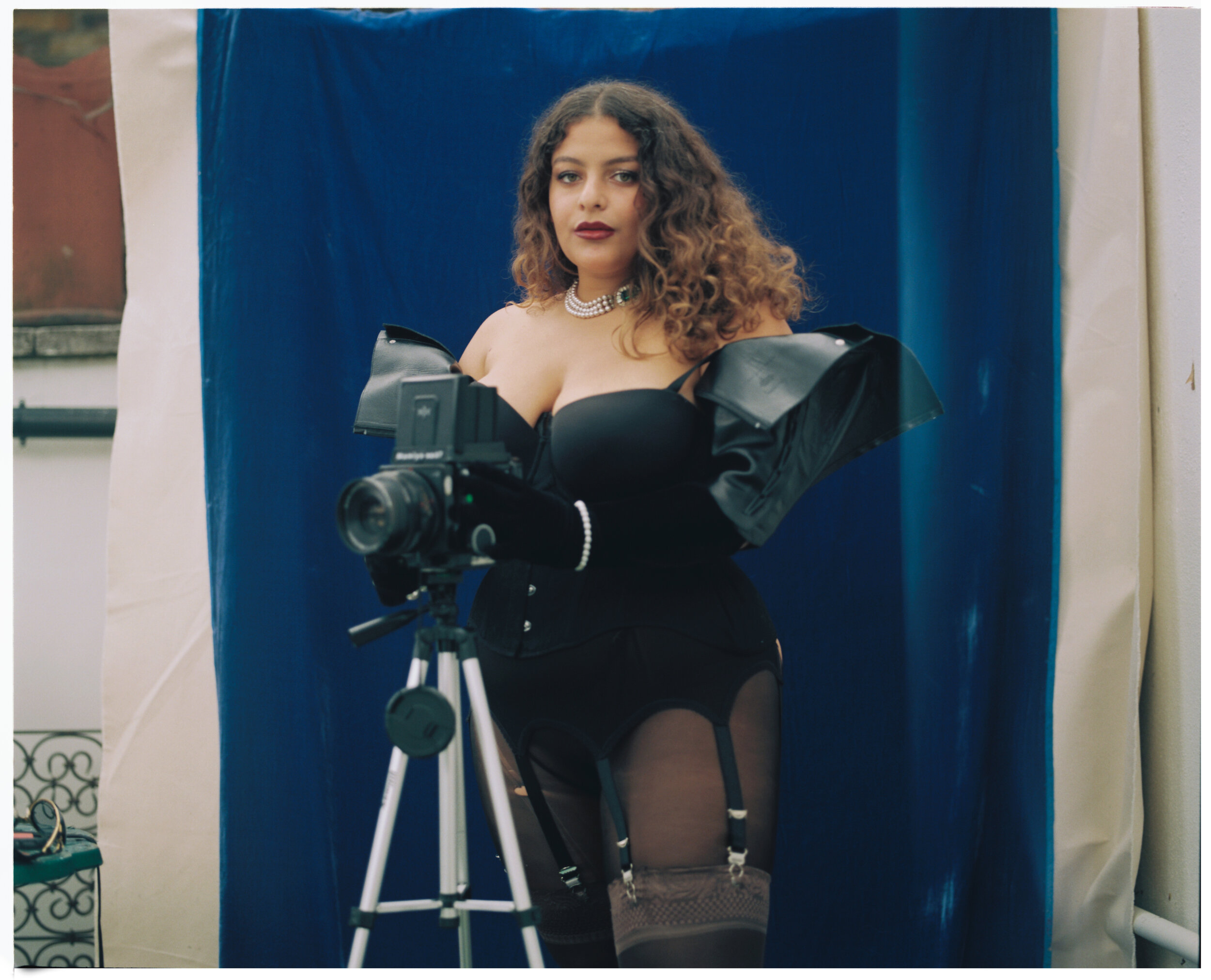Zeina Aref introduces her portrait series exploring style, sensuality and self as a modern Egyptian woman
Images by Zeina Aref.
Written by Zeina Aref, edited by Dalia Al-Dujaili.
Taking the time to explore myself and search for answers that don’t really exist is a beautifully confusing journey. Rather than constantly judging and constraining aspects of myself, I learned how to embrace my sexuality as an extension of my identity.
The only way to take back power is to stop asking for it to begin with. I was tired of being angry, tired of my sexual journey being questioned, tired of being interrogated about the way I dress, and tired of my honest and outspoken nature being translated as a branch of aggression.
Exploring this through a series of different characters, all inspired by the people I come across in everyday Cairo, I experiment and set boundaries that are representative of me as a modern Egyptian woman. And so this is me: existing and exploring just for the sake of it. Exploring and redefining femininity and masculinity and everything in between for myself.
Mossad, my first facet, is an ode to the broad-figured and necessarily intimidating women claiming the chaotic streets of downtown Cairo - whether she’s a vendor selling bedazzled cheetah scrunchies or a mother of four lifting her kids across a 7-way round-about. Traditionally worn by men, the galabiya represents the comfortable dominance I associate with childhood memories of my father lounging on a four-seater sofa alone. Fusing the two ingrained identities, I sit comfortably feminine, comfortably masculine, and most importantly, comfortably not giving a shit.
Shadia, Martina, and Amira all begin to explore the relationship they have between ‘femininity’, dominance, and submission through fashion. There’s this notion in Egypt that to be ‘feminine’ or desirable is to be delicate, polite, and submissive. I remember growing up and being constantly criticised for sitting with my legs open. For smoking in the streets. For having vulgar language. You know, all these things that girls shouldn’t do? These minuscule things that I found being politicised for absolutely no reason fuelled the creative process behind these characters. I mean, if you grow up receiving shit for just existing, at some point you start resenting these facets of yourself. And so, part of this series, and these characters specifically, was to embrace my dominance, my submissiveness, my body, and my identity unapologetically.
The final image of me is perhaps the simplest and most important. I lay with text written across my body by one of my favorite writers, Ahlam Mosteghanemi, which reads:
"اصبحت امراة حرة..فقد لانني قررت ان اكف عن الحلم .الحرية ان لا تنتظر شيئًا..والترقب حالة عبودية"
“I became free only because I decided to stop dreaming, freedom doesn’t wait for anything, and anticipation is a state of slavery” - Ahlam Mosteghanemi.
Through the process of bringing the characters photographed to life, I not only freed myself of all patriarchal, cultural, and postcolonial molds that I had once been complacent to, but also challenged gender binaries and western definitions of sexual liberation. I hope Arab women continue to blur the idea of how to be, and truly just exist, however that may look.
I now realize the only way to remove that shame is to truly unlearn and challenge the reasons behind why we feel or see things in a certain light. I'm still redefining and exploring these boundaries for myself to break past the previous two decades of feminine conditioning. In these portraits, I took off the cloak of shame to share what I've explored and to celebrate what’s yet to come.
Samo, thank you for helping me see and explore these facets of myself.
Follow Zeina below.
Project by Zeina Aref and Samo Shalaby.














